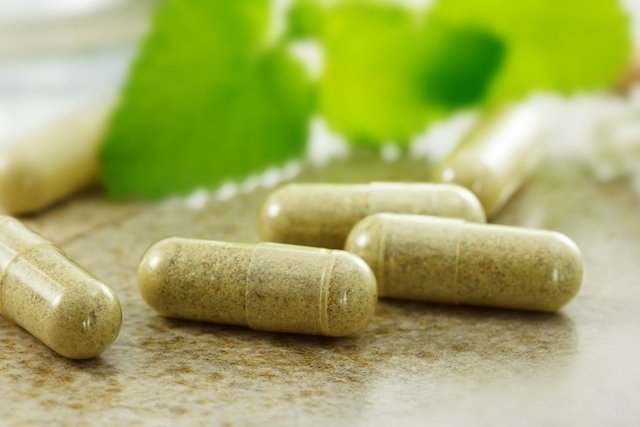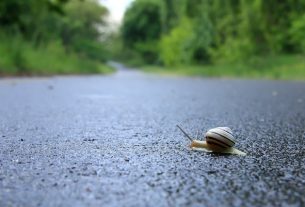There are several treatment options for those who have difficulty sleeping, such as natural remedies, such as valerian, passionflower or chamomile, non-prescription remedies such as melatonin or l-tryptophan, or hypnotics and sedatives, which are prescribed by the doctor as a last resort, when no other method was effective in relieving insomnia.
To improve sleep, you should always prioritize healthy habits, such as good nutrition, regular exercise and relaxation techniques over medications. Find out how to cure insomnia without taking medication.
Furthermore, it is important to consult a psychiatrist when insomnia is very common, worsens quality of life or is accompanied by other symptoms, such as mood changes or depression, for example, so that the cause can be identified and the most appropriate treatment can be initiated.

Pharmacy medicines that do not require a prescription
Some pharmaceutical sleep aids do not require a prescription, however, it is important to consult your doctor before taking them.
1. Melatonin
Melatonin is a hormone produced by the body itself, whose function is to regulate the circadian rhythm, making it function normally. Melatonin production is controlled by exposure to light and dark cycles, being stimulated at dusk and inhibited during the day.
Therefore, taking melatonin in the form of a dietary supplement can help in cases of sleep disorders and changes in the circadian rhythm, as occurs in people with jet lagwho work night shifts, or who suffer from psychiatric disorders.
In these situations, melatonin aims to resynchronize these cycles, simultaneously exerting a hypnotic and sedative effect, thus promoting the induction and maintenance of sleep.
The recommended dose approved by ANVISA of the melatonin food supplement is 0.21 mg per day for adults over 19 years of age, taken orally, in the form of tablets or drops, 1 to 2 hours before bedtime, not requiring of medical prescription to be purchased.
However, to purchase higher doses, a prescription may be required. Learn more about the health benefits of melatonin.
2. L-tryptophan
L-tryptophan is an amino acid found in the form of a dietary supplement, indicated for sleep disorders, such as insomnia, or to help treat depression or anxiety.
When used, L-tryptophan, when metabolized by the body, becomes serotonin, which is an important neurotransmitter responsible for regulating mood, appetite and sleep.
The normally recommended doses of L-tryptophan are 1 to 3 grams per day, and although it can be found in the form of an isolated supplement, L-tryptophan is more easily found in combination with medicines or other substances such as magnesium, for example. Learn how to use L-tryptophan correctly.
Pharmacy medicines that require a prescription are generally hypnotics and sedatives, which are generally recommended when immediate relief from insomnia is needed, when insomnia compromises quality of life or persists even after treating its cause.
Furthermore, these remedies are indicated when other measures to treat insomnia have not been effective, such as sleep hygiene or the use of natural remedies, for example. See how to practice sleep hygiene.
These medicines are only sold with a medical prescription and the prescription is retained by the pharmacy, and must be used for a short period of time, as they can cause side effects such as dizziness, drowsiness or dependence.
1. Benzodiazepines
The benzodiazepines most recommended by doctors for the treatment of insomnia are alprazolam, triazolam, estazolam, flurazepam or flunitrazepam, for example, as they act by decreasing brain functions, causing a tranquilizing effect and drowsiness.
Benzodiazepines increase sleep time, reduce sleep onset time, and increase sleep quality.
The dosage varies according to the type of medication and the severity of the insomnia and should always be recommended by the doctor.
2. Non-benzodiazepines
Non-benzodiazepine medicines, also known as Z medicines, are newer and have fewer side effects than benzodiazepines, however, they can cause memory problems, and should also be used with caution and under medical supervision.
The main non-benzodiazepine medications that are generally prescribed by a doctor are zaleplone, zopiclone or zolpidem, for example.
3. Melatonin analogues
The main melatonin analogue that may be recommended by a doctor for the short-term treatment of insomnia is ralmetheone, which is capable of binding to melatonin receptors in the brain and causing an effect similar to that of this hormone, which helps to fall asleep and stay asleep. a relaxing and quality sleep.
The normally recommended dose is 1 8 mg tablet, approximately 30 minutes before going to sleep.
4. Antidepressants
Some antidepressants may be indicated for the treatment of insomnia, such as amitriptyline, Trazodone or Mirtazapine, as they have sedative properties as they act by inhibiting the reuptake of acetylcholine, norepinephrine and serotonin in the nervous system, decreasing the time to fall asleep and increasing the total sleep time.
Generally, these medications are indicated for treating depression and insomnia at the same time, and doses vary depending on the medication and the severity of the symptoms.
Natural sleep remedies
Natural remedies should be your first choice when you have difficulty sleeping.
Some natural sleep remedy options are:
1. Valerian
Valerian root has a calming action, reduces anxiety and improves sleep quality. Discover all the benefits of this plant.
Valerian is a widely used plant, which can be found in various supplements, such as Valdorm, Valerimed, Valmane or Calman, for example. The recommended dose varies between 45 to 450 mg, approximately 30 minutes before bedtime.
2. Chamomile
Chamomile is a plant that helps to calm, relax and reduce stress and anxiety, which are often factors that cause insomnia.
To enjoy its benefits, you can drink tea before bed. See how to prepare chamomile tea and what other benefits it can have.
3. Lavender
Lavender is a violet flowering plant, very easy to find, which has numerous benefits. To help you fall asleep and improve your quality of sleep, simply smell a few drops of lavender essential oil for about 30 minutes before bed.
Additionally, you can also make a pillow scented with lavender or a mixture of herbs and use it at night. See how to make a scented pillow.
4. Passionflower
Passionflower is a plant widely used in insomnia, anxiety and other disorders of the central nervous system, due to its composition rich in flavonoids and alkaloids, which reduce motor activity, have sedative, anxiolytic and antispasmodic effects and help prolong sleep.
Passionflower can be found alone or in combination with other herbal medicines, in supplements such as Pasalix, Passiflorine, Ritmoneuran, Tensart or Calman, for example, or in tea form. In the case of supplements, the recommended dose can vary from around 100 to 200 mg before bed. Learn how to take passionflower correctly.
5. Lemon balm
Lemon balm is a plant with calming properties that improve sleep quality. To enjoy these benefits, simply make a tea with its leaves. Learn how to prepare lemon balm tea.
Watch the following video and see more examples of natural tranquilizers that help reduce anxiety and sleep better:
How to use medicines safely
During treatment with medicines that help you sleep, you should avoid drinking alcoholic beverages or other sedative medicines close to the time of taking them, you should sleep at least 8 hours, to avoid waking up drowsy the next day and you should never take a extra dose in the middle of the night.
Furthermore, you should always start treatment with the lowest dose possible, avoid frequent use as much as possible and not drive or operate machinery while the medication is taking effect.
Here are some tips that can help you sleep better:

Sign up for our newsletter and stay up to date with exclusive news
that can transform your routine!
Warning: Undefined array key "title" in /home/storelat/public_html/wp-content/plugins/link-whisper-premium/templates/frontend/related-posts.php on line 12
Warning: Undefined array key "title_tag" in /home/storelat/public_html/wp-content/plugins/link-whisper-premium/templates/frontend/related-posts.php on line 13



